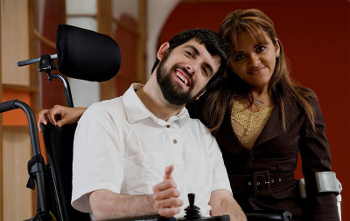
What are the Listings of Impairments?
 The Social Security Administration uses the Listings of Impairments, also called the Blue Book, as part of the process of determining whether a claimant is disabled. The Listings are descriptions of impairments, and the specific level of severity that is required for someone to be found disabled if they have that impairment. One step in the disability determination process is considering whether a claimant “meets or equals a listing.” Claimants may meet a listing because there is medical evidence showing the level of severity required by the listing. If claimants do not meet a listing, they may nevertheless “equal” a listing, because they have an equivalent impairment or a combination of impairments. If claimants do not meet or equal a listing, they may still be found disabled at another step in the five-step process of disability determination.
The Social Security Administration uses the Listings of Impairments, also called the Blue Book, as part of the process of determining whether a claimant is disabled. The Listings are descriptions of impairments, and the specific level of severity that is required for someone to be found disabled if they have that impairment. One step in the disability determination process is considering whether a claimant “meets or equals a listing.” Claimants may meet a listing because there is medical evidence showing the level of severity required by the listing. If claimants do not meet a listing, they may nevertheless “equal” a listing, because they have an equivalent impairment or a combination of impairments. If claimants do not meet or equal a listing, they may still be found disabled at another step in the five-step process of disability determination.
The Listings have very specific and detailed requirements. A diagnosis is not enough. As an example, let us consider a claimant who has been diagnosed with a depressive disorder. Many people are diagnosed with depression and are still capable of working, but Social Security disability claimants may be found disabled if they meet the requirements of the appropriate listing. To find the appropriate listing, we can look up the Listings on the Social Security Administration’s website. Section 12.00 covers Mental Disorders, and within that section, 12.04 covers Affective Disorders. The relevant requirements for depressive syndrome state that the required level of severity is met “when the requirements in both A and B are satisfied, or when the requirements in C are satisfied”:
“A. Medically documented persistence, either continuous or intermittent,” of
“1. Depressive syndrome characterized by at least four of the following:
a. Anhedonia or pervasive loss of interest in almost all activities; or
b. Appetite disturbance with change in weight; or
c. Sleep disturbance; or
d. Psychomotor agitation or retardation; or
e. Decreased energy; or
f. Feelings of guilt or worthlessness; or
g. Difficulty concentrating or thinking; or
h. Thoughts of suicide; or
i. Hallucinations, delusions, or paranoid thinking
AND
“B. Resulting in at least two of the following:
1. Marked restriction of activities of daily living; or
2. Marked difficulties in maintaining social functioning; or
3. Marked difficulties in maintaining concentration, persistence, or pace; or
4. Repeated episodes of decompensation, each of extended duration
OR
“C. Medically documented history of a chronic affective disorder of at least 2 years’ duration that has caused more than a minimal limitation of ability to do basic work activities, with symptoms or signs currently attenuated by medication or psychosocial support, and one of the following:
1. Repeated episodes of decompensation, each of extended duration; or
2. A residual disease process that has resulted in such marginal adjustment that even a minimal increase in mental demands or change in the environment would be predicted to cause the individual to decompensate; or
3. Current history of 1 or more years’ inability to function outside a highly supportive living arrangement, with an indication of continued need for such an arrangement.”
So, a person with a diagnosis of depression, in order to be found disabled by meeting the listing, should have medical evidence showing that they meet the above requirements, and an attorney to compile the evidence and make the argument to the judge that the evidence shows that the claimant meets the listing.
The information on this website does not constitute legal advice. Use of this website, including the contact form or comments form, does not establish an attorney-client relationship. In Florida, Brendan Conley practices Social Security disability law exclusively. Attorney charges no fee unless your case is successful; clients may be responsible for their own costs, such as medical costs. Copyright Brendan Conley 2013-2025. Colorado: 999 18th St. Ste. 3000, Denver, CO 80202. Phone: 720-738-1737. Fax: 720-513-9654. D.C./Virginia: 4250 Fairfax Dr. Ste. 600, Arlington, Virginia 22203. Phone: 703-485-4094. Fax: 703-343-9208. Florida: 7320 E. Fletcher Ave. Tampa, FL 33637. Phone: 813-444-2889. Fax: 813-492-2926.